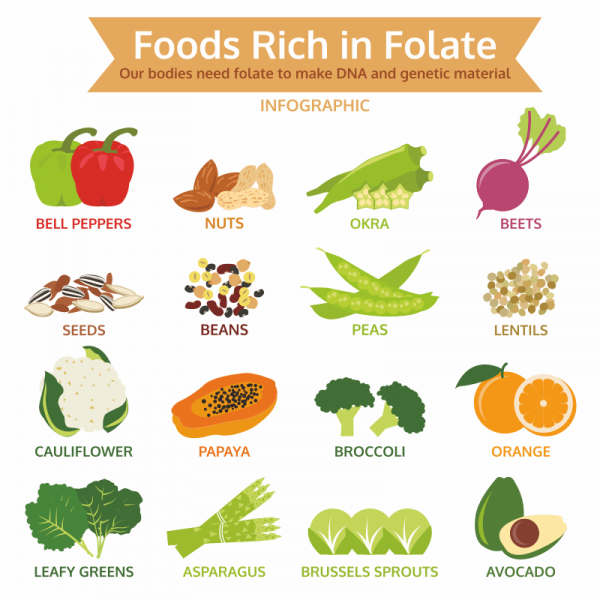Folic acid and your genetic variant
How a gene test could help you prevent serious health concerns
In one of our genetic tests, the “Sport & Fitness” the focus is on various genes and enzymes. MTHFR is an important gene that gets run through the test. MTHFR or methylenetetrahydrofolate reductase is an enzyme in the chemical reaction that creates folate by adding a methyl group to folic acid.
You can find out which variant of MTHFR gene you has from tests below:
Folic acid and our genes
Other symptoms from the lack of our bodies converting folic acid to methylfolate include: allergic reactions to different substances, high blood pressure, strokes, blood clots, depression, anxiety, and certain cancers. It can even affect your thyroids, cause headaches, and insomnia.
Once you have been tested, the easiest treatment is to increase our folate by taking it orally in an already activated form. The biggest step is to know if you need this treatment. The Sport & Fitness test takes on a new importance once you see all the harmful things that could happen to your body, and the easy treatment if it is caught beforehand.
Even without knowing if your genes are operating correctly, it is a good idea to take some precautions. Most of us know already that we have stress daily and are often left open to different toxins. One precaution is that instead of taking a multivitamin that has folic acid in it, look for a multivitamin that has “folate” or “methylfolate” in it. Try to avoid any food with folic acid and try to consume more activated folate. If you cannot find a multivitamin, there are some foods which contain folate. This is found mainly in vegetables and other foods like spinach, okra, bell peppers, beets, cauliflower, broccoli, asparagus, brussel sprouts, beans, avocado, lentils, beans, nuts, seeds, oranges, and papaya. While these foods do contain some folate, if you have a serious health concern, it is important to take other measures in order to make sure you do not have any on-going health issues.



















